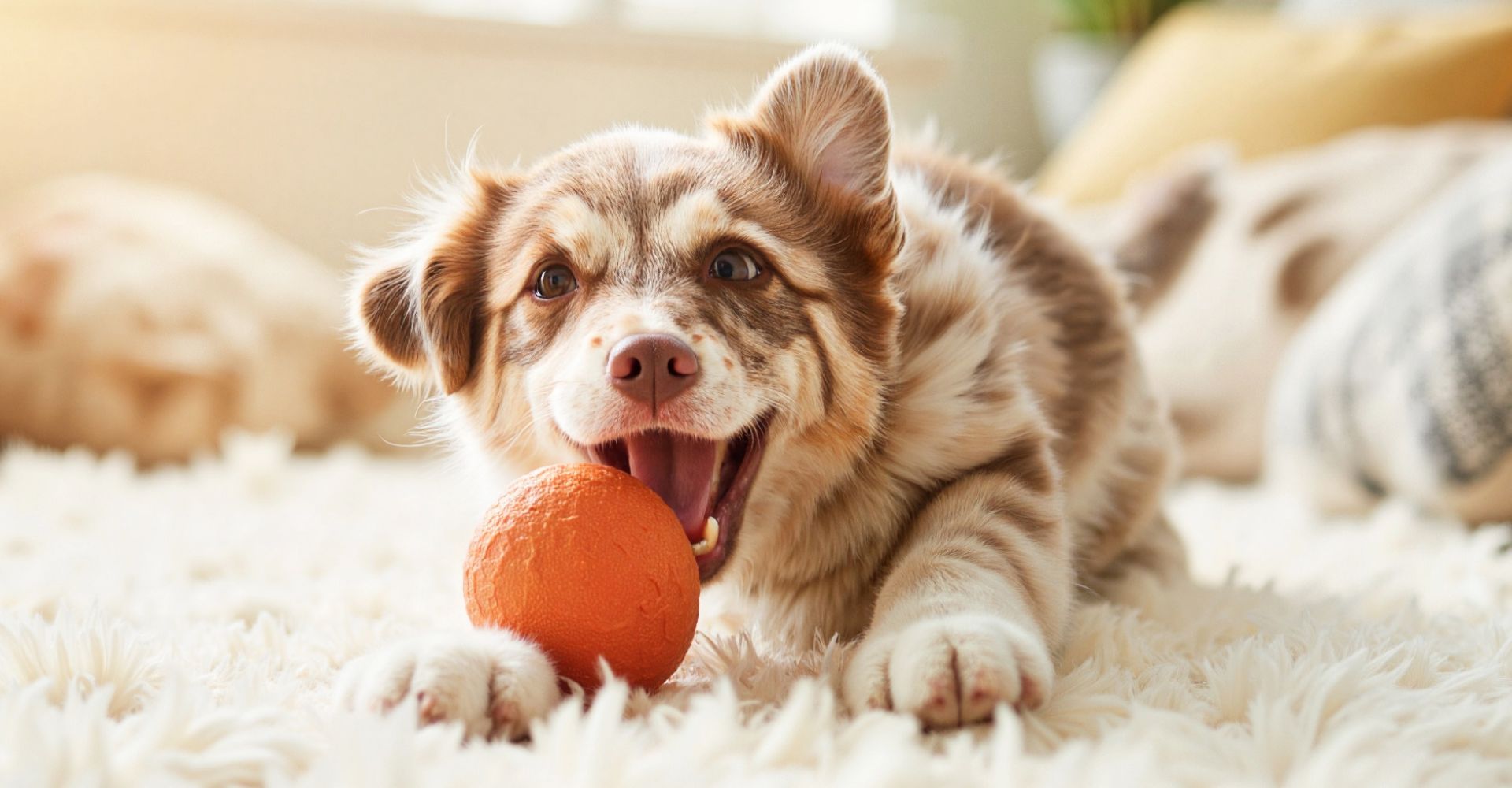We’ve all seen the videos online: A gobbled-up sock or a swallowed AirPod. Pets ingesting foreign objects is one of the top reasons for emergency vet visits, and they can quickly turn into a serious and expensive situation.
Let’s take a closer look at the most common foreign objects ingested by pets, how to spot the signs, and what to do if your fur child takes a bite out of something weird. And if you're not already covered, dotsure.co.za pet insurance could take the bite out of those vet bills too!
RELATED: EXPERT VET TIPS FOR FOREIGN BODY OBJECTS DOGS SWALLOW
The Most Common Foreign Objects Pets Swallow
Toys, Balls & Bits of Chewables
Small rubber toys, squeakers, bouncy balls, and even toy stuffing are prime suspects that get stuck in your dog’s stomach. Cats aren’t innocent either. Those feather wands and loose strings can all be swallowed, too!
Bones, Food Wrappers & Leftovers
Cooked bones can splinter and cause blockages or internal damage. Foil, cling wrap, and packaging like a chip bag? They might smell like heaven to your pet, but can mean serious trouble inside their digestive tract.
Socks, Underwear & Random Laundry
Dogs love laundry day! The random sock or three that didn’t reach the washing line could be hanging out in their tummies instead. And yes, this also happens to cats, especially kittens.
Rocks, Sticks & Garden Debris
Some dogs love eating rocks. And we will never get it. Others chew on garden branches like it’s their full-time job. These can cause severe obstructions or dental injuries.
Metal, Plastic & Household Items
Coins, batteries, jewellery, bottle caps, hair ties, earbuds… they’ve all made their way into a pet's stomach at some point in time.
RELATED: TOP 15 FOODS DOGS SHOULD NEVER EAT
Signs Your Pet Has Swallowed a Foreign Object
Worried that your pet’s eaten something dodgy? Look out for these signs:
- Repeated vomiting or dry heaving
- Refusing food, acting tired, or hiding away
- Hunched posture, whining, or tummy sensitivity
- Struggling to poop, or passing strange objects. Ever seen some lace hanging from their you know what? It happens!
We do not recommend pulling that lacey lingerie out yourself. If you notice any of these signs, call your vet to discuss the best course of action.
What To Do When Your Pet Swallows Something They Shouldn’t
Step 1: Try to figure out what they ate and when.
Step 2: Don’t try to make them vomit unless your vet says so.
Step 3: Call your vet and follow their expert advice.
Your vet will either suggest monitoring your pet and waiting until it passes naturally or recommend surgery if it’s dangerous and causing symptoms.
Can You Help Them Pass It Naturally?
Sometimes, yes. If the object is small and smooth, a vet may suggest feeding high-fibre food to help move things along. But this should never be done without professional guidance. Attempting DIY treatments can make things worse.
Prevention is the Best Cure
Keeping curious mouths out of trouble doesn’t have to be hard:
Pet-proof your home
Try to keep laundry, cables, and small objects out of reach.
Choose the right toys
Opt for vet-approved, size-appropriate toys that can’t be swallowed or shredded easily.
Train & supervise
"Leave it" and "drop it" are lifesaving commands. Monitor playtime and discourage chewing on unsafe things. It’s not “cute” when they eventually swallow that hair scrunchie they were playing with.
Better Safe Than Swallowed
The list of the most common foreign objects in pets is extensive. And while we love everything our pets do, eating weird stuff shouldn’t be one of them.
Keep an eye out for signs of trouble and get your pet covered, just in case their next snack isn’t from their food bowl. For affordable, reliable cover when things go down the wrong hatch, pet insurance from dotsure.co.za is here to protect your wallet and your pet’s tummies!



